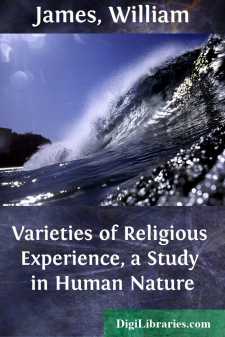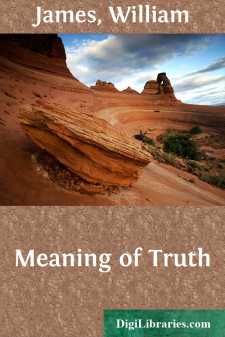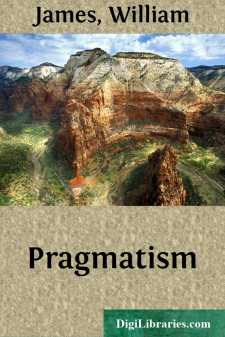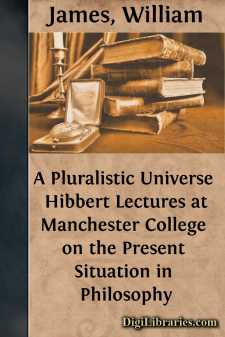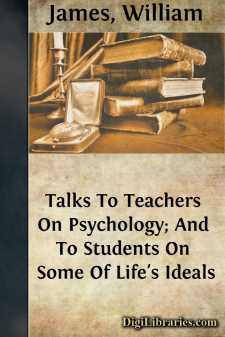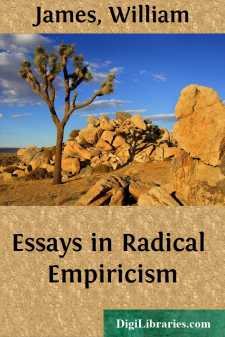Categories
- Antiques & Collectibles 13
- Architecture 36
- Art 48
- Bibles 22
- Biography & Autobiography 813
- Body, Mind & Spirit 142
- Business & Economics 28
- Children's Books 16
- Children's Fiction 13
- Computers 4
- Cooking 94
- Crafts & Hobbies 4
- Drama 346
- Education 46
- Family & Relationships 57
- Fiction 11829
- Games 19
- Gardening 17
- Health & Fitness 34
- History 1377
- House & Home 1
- Humor 147
- Juvenile Fiction 1873
- Juvenile Nonfiction 202
- Language Arts & Disciplines 88
- Law 16
- Literary Collections 686
- Literary Criticism 179
- Mathematics 13
- Medical 41
- Music 40
- Nature 179
- Non-Classifiable 1768
- Performing Arts 7
- Periodicals 1453
- Philosophy 64
- Photography 2
- Poetry 896
- Political Science 203
- Psychology 42
- Reference 154
- Religion 513
- Science 126
- Self-Help 84
- Social Science 81
- Sports & Recreation 34
- Study Aids 3
- Technology & Engineering 59
- Transportation 23
- Travel 463
- True Crime 29
William James
William James (1842-1910) was an American philosopher and psychologist, often regarded as one of the leading thinkers of the late 19th and early 20th centuries. He is best known for his contributions to pragmatism, a philosophical tradition that assesses the truth of beliefs based on their practical outcomes, and for his seminal work "The Principles of Psychology," which laid the foundation for modern psychology. James also explored religious experiences and mysticism, profoundly influencing both philosophy and psychology through his interdisciplinary approach.
Author's Books:
Sort by:
by:
William James
RELIGION AND NEUROLOGY It is with no small amount of trepidation that I take my place behind this desk, and face this learned audience. To us Americans, the experience of receiving instruction from the living voice, as well as from the books, of European scholars, is very familiar. At my own University of Harvard, not a winter passes without its harvest, large or small, of lectures from Scottish,...
more...
by:
William James
THE pivotal part of my book named Pragmatism is its account of the relation called 'truth' which may obtain between an idea (opinion, belief, statement, or what not) and its object. 'Truth,' I there say, 'is a property of certain of our ideas. It means their agreement, as falsity means their disagreement, with reality. Pragmatists and intellectualists both accept this...
more...
by:
William James
The lectures that follow were delivered at the Lowell Institute in Boston in November and December, 1906, and in January, 1907, at Columbia University, in New York. They are printed as delivered, without developments or notes. The pragmatic movement, so-called—I do not like the name, but apparently it is too late to change it— seems to have rather suddenly precipitated itself out of the air. A...
more...
by:
William James
LECTURE I THE TYPES OF PHILOSOPHIC THINKING As these lectures are meant to be public, and so few, I have assumed all very special problems to be excluded, and some topic of general interest required. Fortunately, our age seems to be growing philosophical again—still in the ashes live the wonted fires. Oxford, long the seed-bed, for the english world, of the idealism inspired by Kant and Hegel, has...
more...
by:
William James
TALKS TO TEACHERS In the general activity and uprising of ideal interests which every one with an eye for fact can discern all about us in American life, there is perhaps no more promising feature than the fermentation which for a dozen years or more has been going on among the teachers. In whatever sphere of education their functions may lie, there is to be seen among them a really inspiring amount of...
more...
by:
William James
The present volume is an attempt to carry out a plan which William James is known to have formed several years before his death. In 1907 he collected reprints in an envelope which he inscribed with the title ‘Essays in Radical Empiricism’; and he also had duplicate sets of these reprints bound, under the same title, and deposited for the use of students in the general Harvard Library, and in the...
more...


